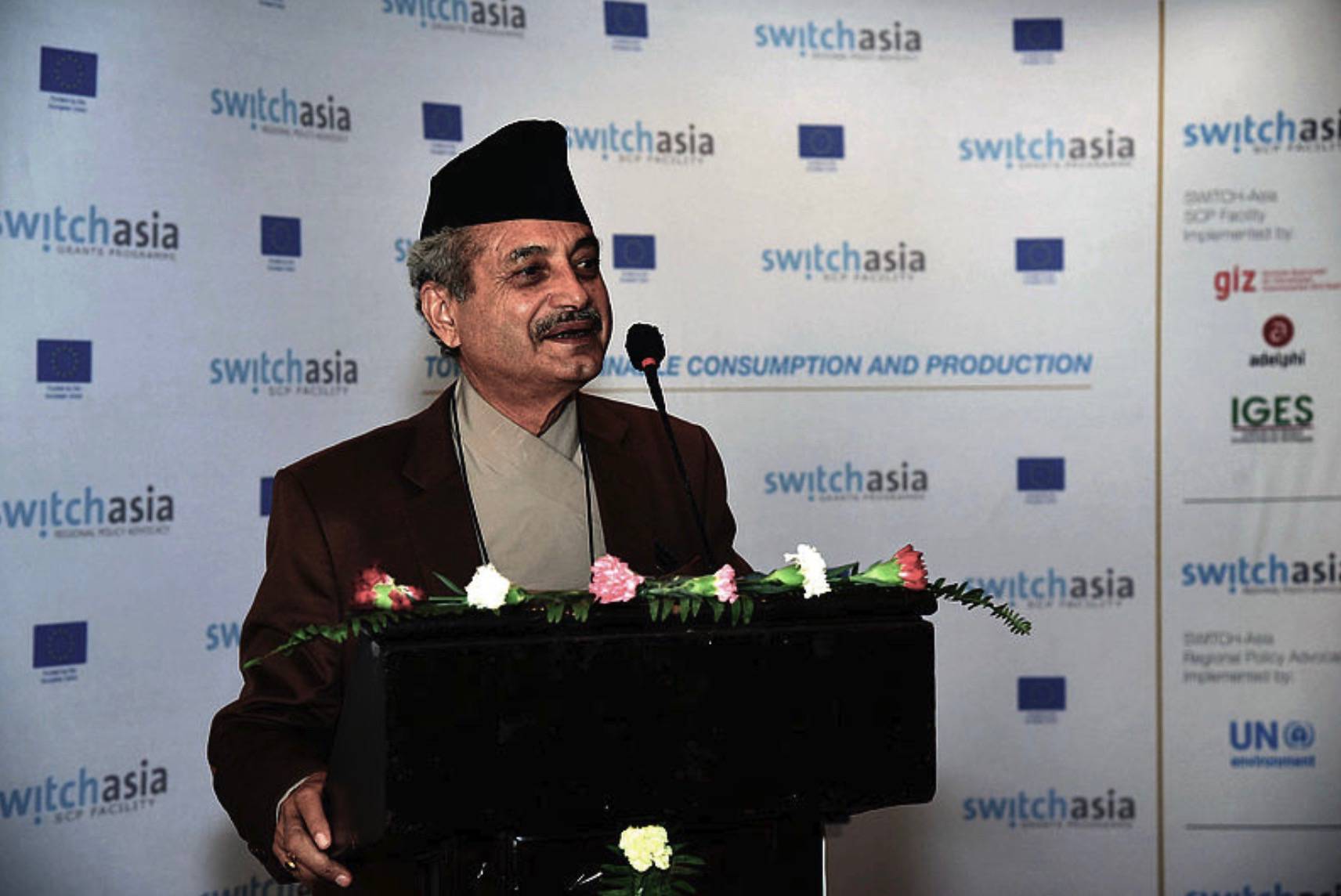
Kathmandu, Nepal, 25 October, 2018 – The first in a series of national dialogues kicked off today, bringing together voices from across Nepal, successfully outlining sustainable consumption and production (SCP) priorities that will drive policy and private sector actions. Organised by the European Union Delegation to Nepal (EU) and the EU’s SWITCH-Asia SCP Facility, in partnership with the Government of Nepal, these consultations give stakeholders an opportunity to frame the needs and identify opportunities for better driving actions towards sustainability.
Government officials, private sector leaders, representatives from SWITCH-Asia grants projects in Nepal and experts in key policy areas, and the media, participated in today's event. The engagement of such a wide range of stakeholders in the process is a demonstration of Nepal’s commitment to aligning its agenda with the UN 2030 Sustainable Development Agenda and its Sustainable Development Goals (SDGs).
As energy issues were central to the dialogue, Hon’ble Member of the National Planning Commission Dr. Krishna Prasad Oli underscored the government's commitment to achieve the SDGs within the given time frame in spite of challenges due to the inefficient energy consumption coupled with lack of diversification of agriculture. He called SWITCH-Asia as a “potential connector between the strategies and actions, to ensure together a quality and healthy life of people of Nepal.”
SWITCH-Asia could be a means to increase the production, optimize consumption and ensure food security, thereby combating adverse effects of climate change while contributing to achieving the SDGs. As explained during the discussion today by Dr. Bishwa Nath Oli, Secretary of Ministry of Forest and Environment (MoFE), the programme is promising. Resource efficient housing, waste minimization and green procurement were also discussed, in the context of Nepal’s growing consumption and production needs while the importance of enabling small and medium enterprises and municipalities was also highlighted as an area SWITCH-Asia could contribute to.
H.E. Ms. Veronica Cody, Ambassador of the European Union stressed that SWITCH-Asia is a useful tool for promoting sustainable growth, developing a green economy and achieving poverty reduction and prosperity in Asia. Via grant projects in Nepal, it contributes to sustainable and enterprise-friendly development. She stated that “Through SWITCH-Asia, the EU and its Member States hoped to see engagement on issues that will ensure Nepal’s shift towards sustainable consumption and production and a green economy as well as encourage climate change mitigation.”
Joint Secretary and Chief of Climate Change Management Division of MoFE, Dr. Maheshwar Dhakal mentioned that, “the capacity building of the farmers is crucial to mitigate the effects of climate change, and SWITCH-Asia could help address the problems created by climate change. Policy reform and networking are the means to capacity building as well.”
The SWITCH-Asia SCP Facility, which operates in 19 countries across the Asia region to support policy development, shared its national assessment of Nepal’s situation. In addition to sector priorities, the SCP Facility noted the potential for awareness raising and training to stimulate change. According to Arab Hoballah, Team Leader for the SCP Facility, “Through interventions that improve responsible production and raise consumer awareness on the benefits of resource efficiency we can unlock the opportunities to deliver needed impact. We may think we are only encouraging small changes, but when it happens across the country, it makes all the difference.”
As these consultations continue over the next three years, SWITCH-Asia will keep on providing support to Nepal, convening stakeholders, responding to government requests for policy support and through further research and development to hone in on the priorities and strategies that will create the most impact for Nepal.


